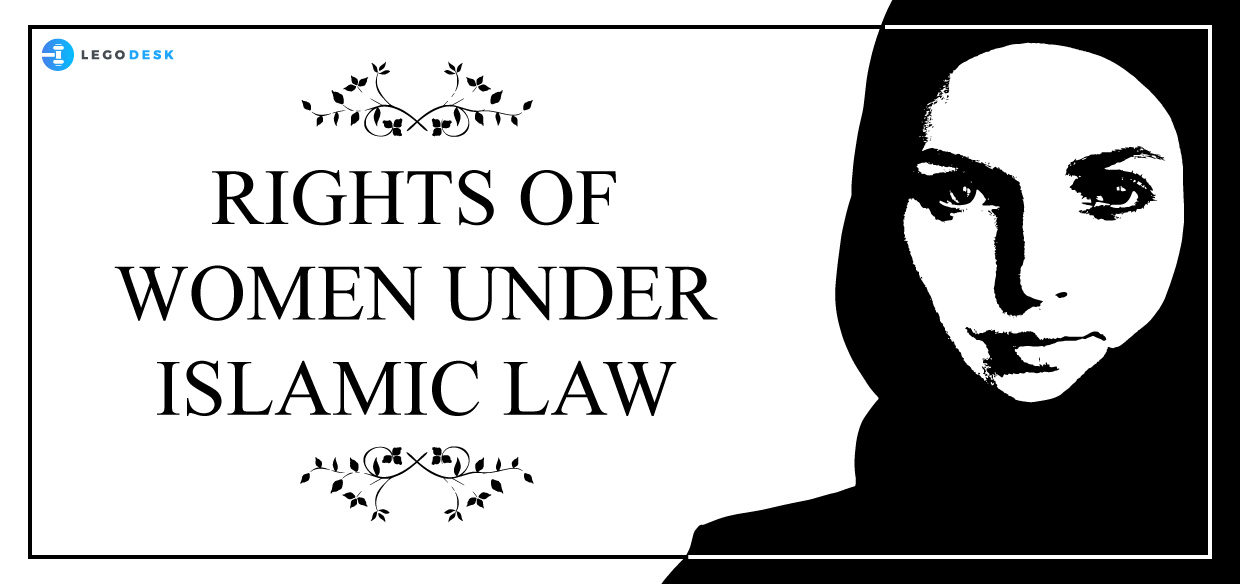Rights of Women under Islamic Law
Introduction
Islamic Religion, in general, is very particular about its culture, traditions, rituals, etc. The practitioners of this religion are also very rigid. they do not violate the sources of religion. The sources are:
- The Holy Quran
- Hadis
- Ijma
- Qiyas
The rights given to the women in a wider sense are many.
The Condition during the Pre-Islamic society
The condition of women was very bad during this period. They were treated as an object, therefore, rarely had any rights. The men were free to do whatever they wanted to do. There was nothing like morality.
Rights in the Islamic Society
The women started gaining rights during the period of Prophet Muhammad. He gave a definite status to the women in the society and also limited the number of wives to four. He also converted the custom of bridal price in tribal Arabia to Mehr. Even the Holy Quran recognized the position of women in the chapter “Sural-Ul-Nisa” as equivalent to that of the men.
Practices against women in Islam
One must keep in mind that Islam is one of the most rigid religions in the world. Its practices are rigid as well. Many of them are against women. Some of them are the representation of women as the inferior sex, provisions in divorce favouring men, etc. the most criticized practices against women under Islam are:-
- Triple Talaq: – Triple talaq or Talaq-ul-Biddat is the practice which is not given in the Holy Quran but practised largely. It dissolves marriage just upon the triple uttering of the word “Talaq”. It does not even involve the consent of the wife or any reasonable ground for divorce.
- Shayara Bano v. UOI[1]: – Triple Talaq was held a violation of the rights of the women.
- Polygamy: – Four wives at a time are allowed in Islam which is violative of the rights of the women. Although the Holy Quran allows it only on the condition if the husband is able to treat equally all his wives.
Rights of women under Islam
One must also make it clear that religions are there for leading a purposeful life. There are several other practices which are in favour of women. Some of them are:
- Stipulated Dower: -Mehr (dower) is a kind of consideration. It is the money or any other form which is given to secure the life of a woman even after the death of her husband. She doesn’t have to depend on anyone else for her survival.
- Pre-marriage agreement: – The Islamic marriage is a form of contractual marriage and therefore it involves a contractual agreement and a woman can frame its provisions as per her conscience is concerned.
Rights under the Indian Legal system
various acts and provisions are there to protect the rights of Muslim Women. Some of these are as follows:
- The Muslim Personal Law (Shari-at) Application Act, 1937:- Sec.2 states that Muslim Personal Law Sharia applies to all Muslims in all questions, save those relating to agricultural land, regarding intestate succession, special property of females, including personal property inherited or obtained under contract or gift or any other provision of Personal Law, marriage and dissolution of marriage.
- The Dissolution of Muslim Marriages Act, 1939:-
- Sec.2 states that a woman shall be entitled to obtain a decree for the marriage dissolution on the following grounds for instance disappearance of the husband for a period of four years; neglect or lack of maintenance for a period of two years; husband’s imprisonment for a period of seven years or upwards; failure of performing marital obligations for a period of three years.
- Sec.5 says that nothing contained in this Act shall affect any right which a married woman may have under Muslim law to her dower or any part thereof on the dissolution of her marriage.
- The Muslim Women Protection of Rights on Divorce Act, 1986:- Protects the rights of divorced Muslim women and provides for all connected matters.
- The code of Criminal Procedure, 1973:-Section 125 Criminal Procedure Code, 1973 empowers the Magistrate to order maintenance in favour of women. If the husband neglects or refuses to maintain his wife without any lawful cause, the wife may sue him for maintenance.
- Ahmad Khan v. Shah Bano[2]: – The court held that Section 125[3] of Code of Criminal Procedure solicited to Muslims too, without any sought of discrimination.
- Shamim Ara v. State of UP[3]: – the Magistrate is bound to provide maintenance to Muslim women even though she approaches the court under the personal law.
Conclusion
In conclusion, various provisions in Islamic law are in favour of women, in other words, they give the required rights to the women and the status of dignity to them.
[1] Writ Petition (C) No. 118 of 2016.
[2] AIR 1985 SCR (3) 844.
[3] (2002) 7 SCC 518
Try our Debt Resolution solutions today Request a Demo
